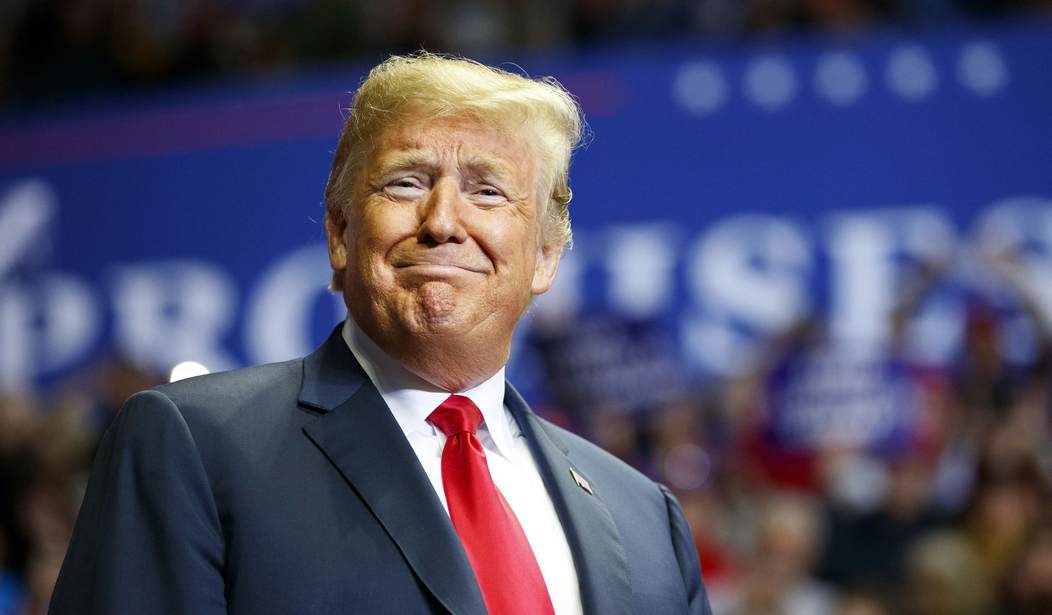President Donald J. Trump won’t back down. Nor should he have to.
Monday, the president held a rally in Biloxi, Mississippi in support of Republican Senate candidate Cindy Hyde-Smith, where he predictably played The Rolling Stones’ You Can’t Always Get What You Wantdespite being repeatedly told by the band’s representatives to stop.
Plenty of artists have expressed disapproval with President Trump’s playing of their music. Rihanna senthim a cease-and-desist letter this month for this very reason. Others, such as Pharrell Williams and Aerosmith’s Steven Tyler, have done the same. Similar issues have long plagued political campaigns, but particularly those of Republicans.
So, what’s the deal here? Is President Trump being ridiculous? Shouldn’t creators be able to stop the president from using their material? For most songwriters, the answer to both of these questions is an emphatic no.
Most performers hand over their work to ASCAP or BMI, performance-rights organizations that house the licenses for almost every musical work that’s heard on the radio today. As such, ASCAP and BMI – not the performers themselves – are in charge of determining who can and can’t play the hits.
Since these two organizations have amassed massive market share with the government’s help (via intellectual property laws), along with a history of engaging in predatory behavior against small businesses by abusing their government-created business model, they agreed to voluntarily sign onto consent decrees with the Department of Justice in 1941, stipulating that they license their entire collections at fair rates to any party that purchases a blanket license from them. This means that any songs in ASCAP and BMI’s control, from the Rolling Stones’ You Can’t Always Get What You Want to Rihanna’s Don’t Stop the Music to Aerosmith’s Livin’ on the Edge, are fair game for President Trump to play.
Recommended
Even Mick Jagger understands and accepts these parameters. In a Twitter Q&A, he addressed Trump playing his music, stating, “The thing is, when you appear in America...if you're in a public place like Madison Square Garden or a theater, you can play any music you want, and you can't be stopped. So, if you write a song and someone plays it in a restaurant that you go to, you can't stop them. They can play what they want.”
If Mick – a singer who has made his disliking of the president playing his music well-known known – is willing to accept these facts, so can everyone else whose music is licensed by ASCAP and BMI. Rather than send toothless cease-and-desists to the president, artists like Rihanna and Steven Tyler should join the adult table, stop thinking about themselves, and understand that the ASCAP/BMI consent decrees that have been on the DOJ’s books for over seven decades serve a very important purpose.
After all, even today with the decrees in place, the Justice Department needs to keep a close eye on ASCAP and BMI. For example, just two years ago the DOJ settled a civil contempt claim with ASCAP for $1.75 million after discovering it violated the terms of the DOJ agreement “by blocking members’ ability to license their songs themselves.” Ironically, in absence of the blanket song licenses that this small group of performers continue to implicitly, and shortsightedly, critique on a regular basis for partisan reasons would ensure that Corporate financial interests come before the rights of songwriters.
While Republicans’ calls to keep the decrees in place might not mean much to left-leaning songwriters, this is not a partisan issue. Democrats, such as Sen. Richard Blumenthal (D-Conn.), agree wholeheartedly and haven’t shied away from vocalizing their opinion.
For these reasons and more, artists should put their hatred of President Trump aside and learn to embrace the rules of the music licensing road before they wreck the system. Andrew Breitbart wasn’t wrong when he said that politics is downstream from culture. Should the creative talent that shapes the culture not educate itself on the cause and effects of their actions and proclamations, they can begin influencing politics – even at the DOJ – for the worse.
It’s time to start shaping up, Hollywood.

























Join the conversation as a VIP Member